PHILIPPINE EMPLOYMENT LAWS RELATIVE TO SEAFARERS: FOCUS ON THE PHILIPPINE ARBITRATION SYSTEM AND AMBULANCE CHASING
Abstract:
The study aimed to provide a supplemental tool to Filipino seafarers in the
understanding of Philippine maritime employment laws, particularly on the arbitration
process relative to seafarers’ labor cases, as these relate to their welfare and security. The
data were obtained through document review, observation of the PDOS, and conduct of
interviews with representatives of government agencies and organizations which are directly
involved in the maritime industry. There are five (5) identified Philippine employment laws
related to the employment of Filipino seafarers, i.e., The Amended Migrant Workers Act of
2010, The Seafarers’ Protection Act of 2015, MARINA Memorandum Circular No. MD-2019-
01, the 2016 POEA Rules and Regulations Governing the Recruitment and Employment of
Seafarers, and DOLE Department Order No. 130, s.2013. Further, two (2) methods of labor
dispute settlement were identified, namely, voluntary arbitration with the NCMB, and
compulsory arbitration with the NLRC. Research results reveal that a total of 622 cases
(84%) in the NCMB Central Office from 2015 to 2017 involved the grant of monetary award
amounting to more than P1,500,000.00. The grant of disability benefits depends on the
degree of disability, and whether the same is total or partial. Also, 622 cases (62%) had
judgment made in favor of labor. This reflects a consistent trend with the provisions of the
Labor Code, which highlights resolution of cases decided in favor of labor. Ultimately, with
the current issues in the maritime industry, such as ambulance chasing, among others, the
findings of this study will provide a convenient guide for seafarers, giving them leverage as
to the seafaring profession. In this respect, it is recommended for POEA and OWWA to
regularly include in the PDOS the discussions of the salient features of the employment
laws, and for MARINA to strengthen its process of verification and updating of the SRB.
0 Comment(s)
Be the first to comment.
Upcoming Event
Research Archives
- MANAGING THE THREATS OF COVID-19 TO SEAFARERS' HEALTH AND WELL-BEING: RESPONSE OF THE PHILIPPINE MARITIME INDUSTRY (PHASE 2)
- PHILIPPINE DOMESTIC MARITIME INDUSTRY'S COMPLIANCE WITH MLC, 2006: CHALLENGES OF IMPLEMENTATION
- ISSUES AND CONCERNS ON THE NON-RATIFICATION OF THE PHILIPPINES OF THE INTERNATIONAL CONVENTION ON STANDARDS OF TRAINING, CERTIFICATION AND WATCHKEEPING FOR FISHING VESSEL PERSONNEL (STCW-F)
- PHILIPPINE MARITIME MANPOWER FACTBOOK 2020 & 2021
- THE CAPACITY OF THE PHILIPPINE MARITIME INDUSTRY TO PRODUCE OFFICERS-IN-CHARGE (OIC) PER STCW REQUIREMENTS: FOCUS ON THE ONBOARD TRAINING (OBT) OF CADETS
- PHILIPPINE EMPLOYMENT LAWS RELATIVE TO SEAFARERS: FOCUS ON THE PHILIPPINE ARBITRATION SYSTEM AND AMBULANCE CHASING
- EMPLOYMENT ACCEPTABILITY OF WOMEN IN PHILIPPINE DOMESTIC SHIPS
- AUTONOMOUS SHIP TECHNOLOGY: ITS IMPLICATIONS TO PHILIPPINE MARITIME INDUSTRY
- REQUIRED NON-TECHNICAL (ESSENTIAL) SKILLS BY EMPLOYERS FOR SHIPBOARD EMPLOYMENT OF MANAGEMENT LEVEL OFFICERS
- PERCEPTION OF NMP FEMALE TRAINEES TOWARDS THE SEAFARING PROFESSION
- HARBOR PILOTAGE IN THE PHILIPPINES A REVIEW OF INTERVENTIONS IN LICENSING, APPOINTMENT AND CAPABILITY BUILDING OF HARBOR PILOTS
- NMP GENDER SENSITIVITY TRAINING FOR SEAFARERS (GSTS) COURSE: A PROGRAM EVALUATION
- SKILLS GAP ANALYSIS OF MARITIME FACULTY IN PHILIPPINE MARITIME HIGHER EDUCATION INSTITUTIONS
- RESPONDING TO THE FILIPINO SEAFARERS’ TRAINING REQUIREMENTS IN THE STCW 2010 MANILA AMENDMENTS: CHALLENGES AND OPPORTUNITIES
Subscribe to our Newsletter
Discover the latest upcoming and ongoing research. Don't forget to pre-register for the upcoming events.
Updates will be notified through your registered email to this portal.

